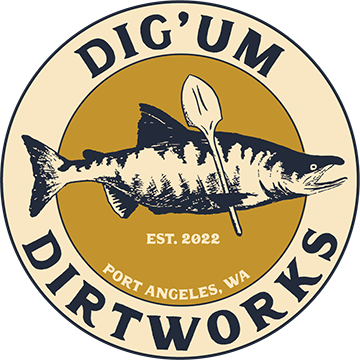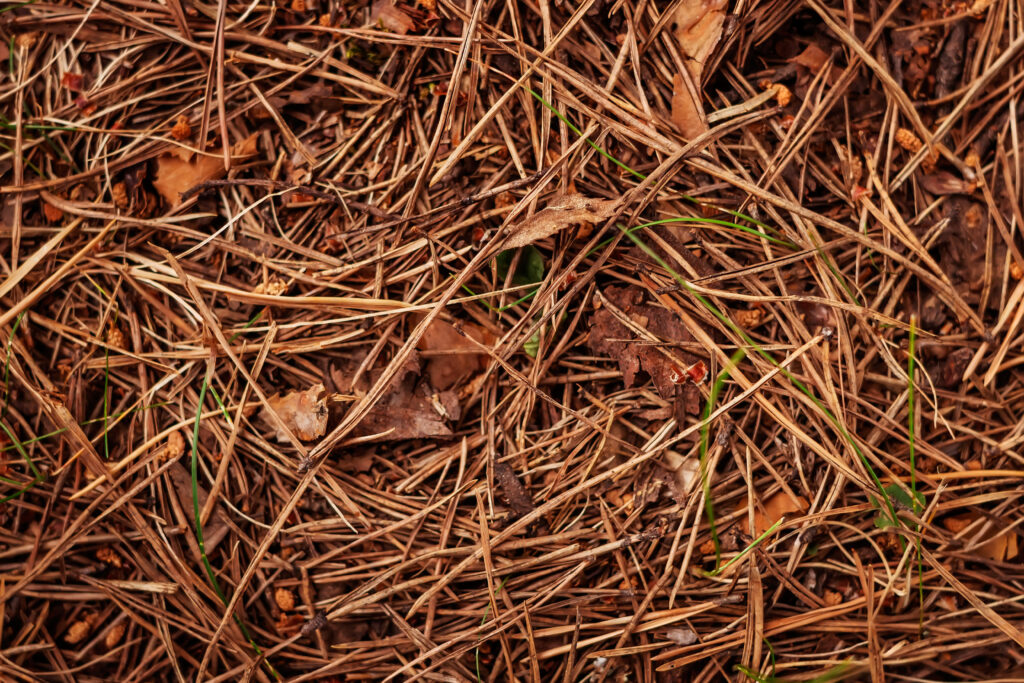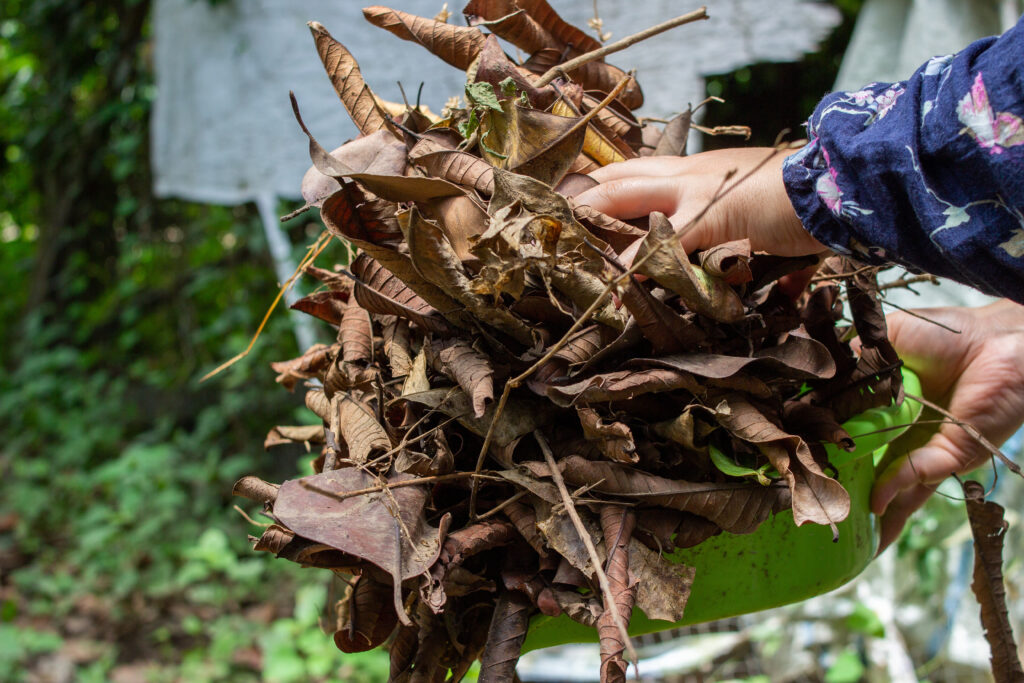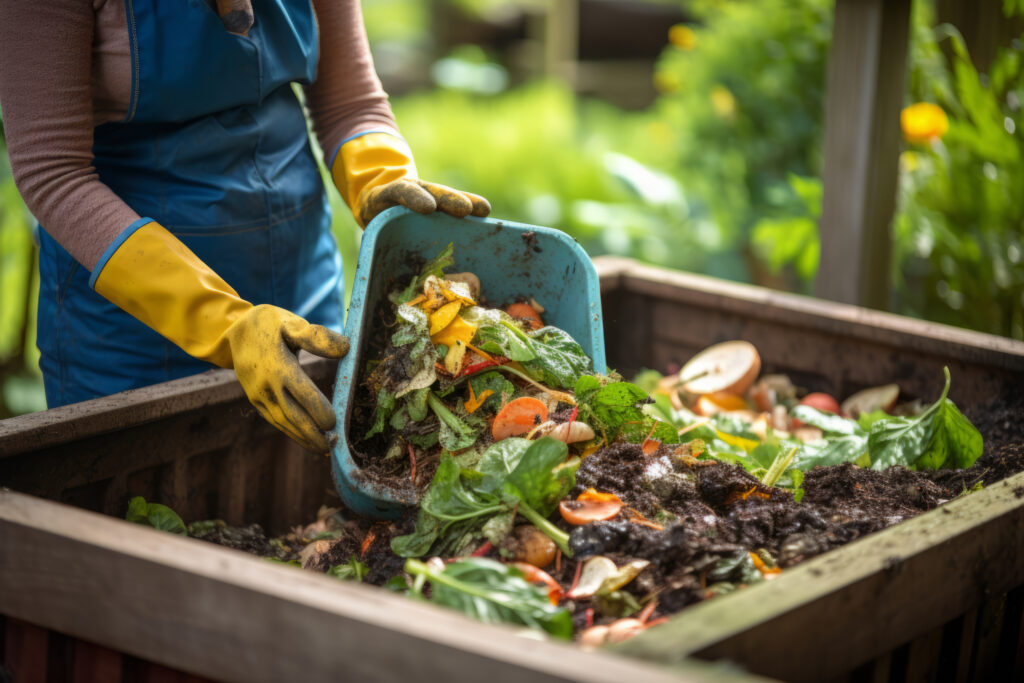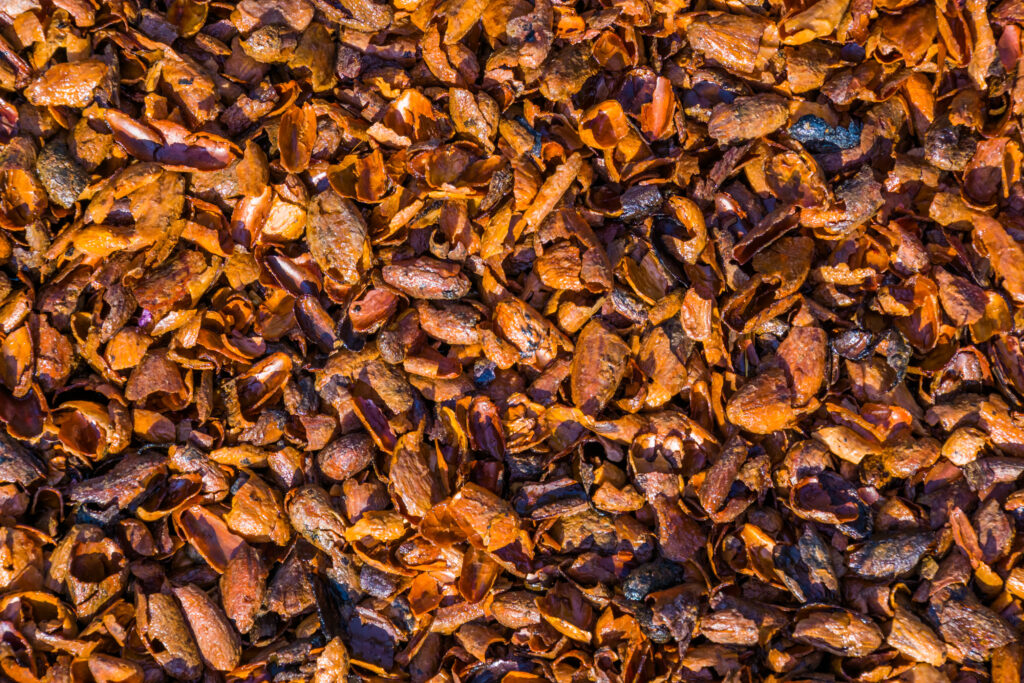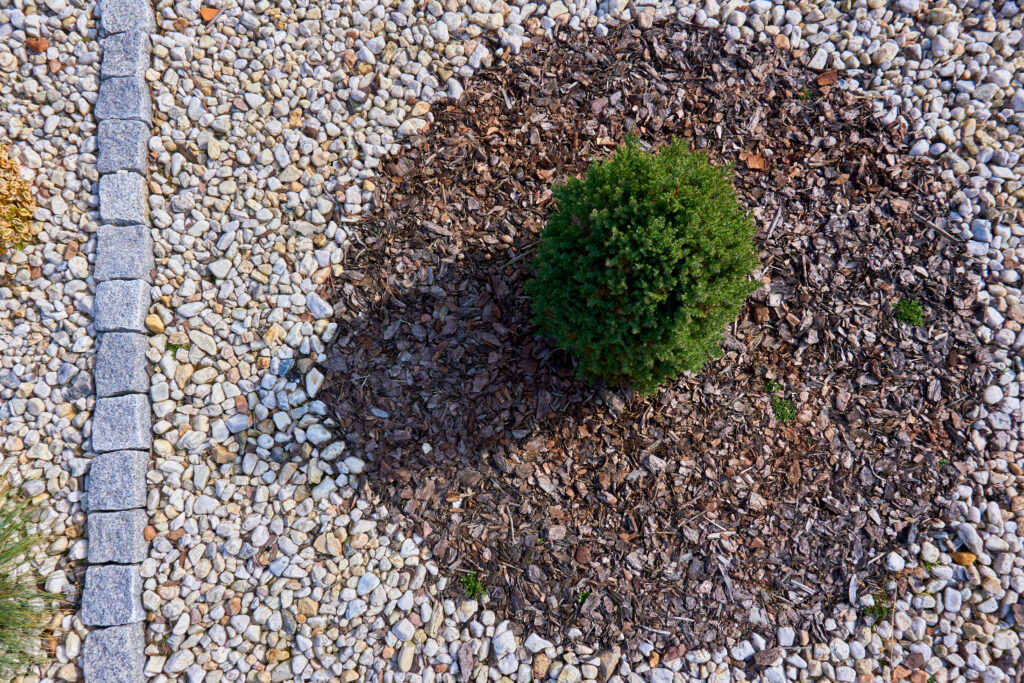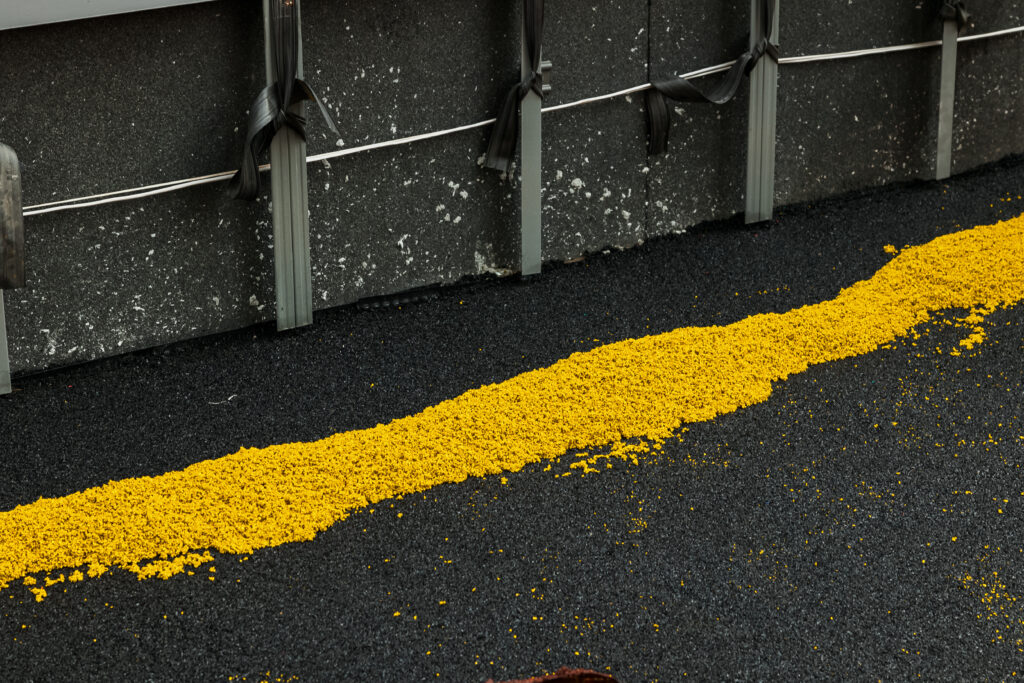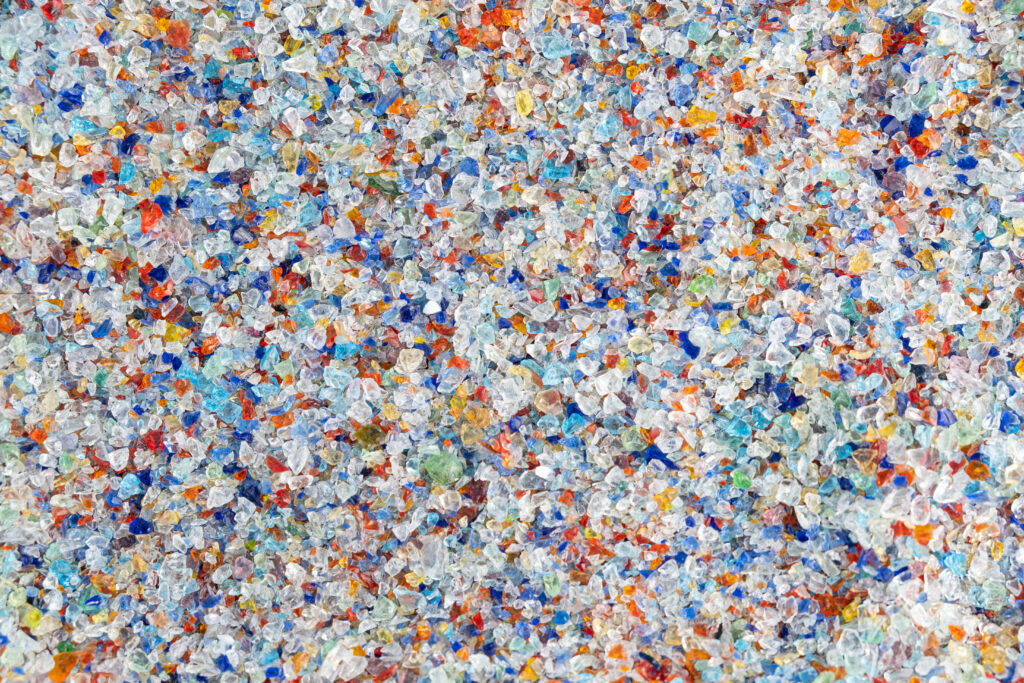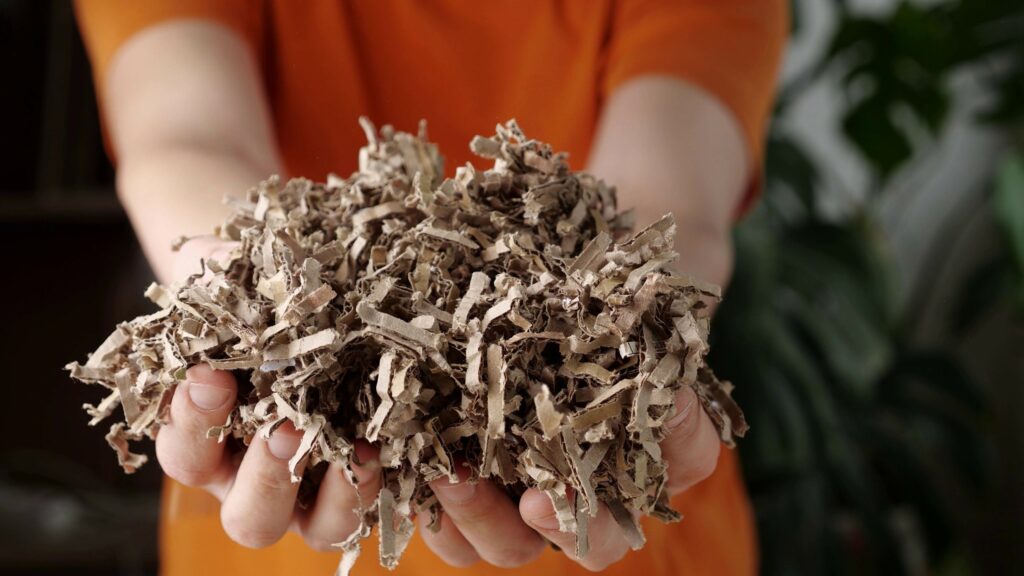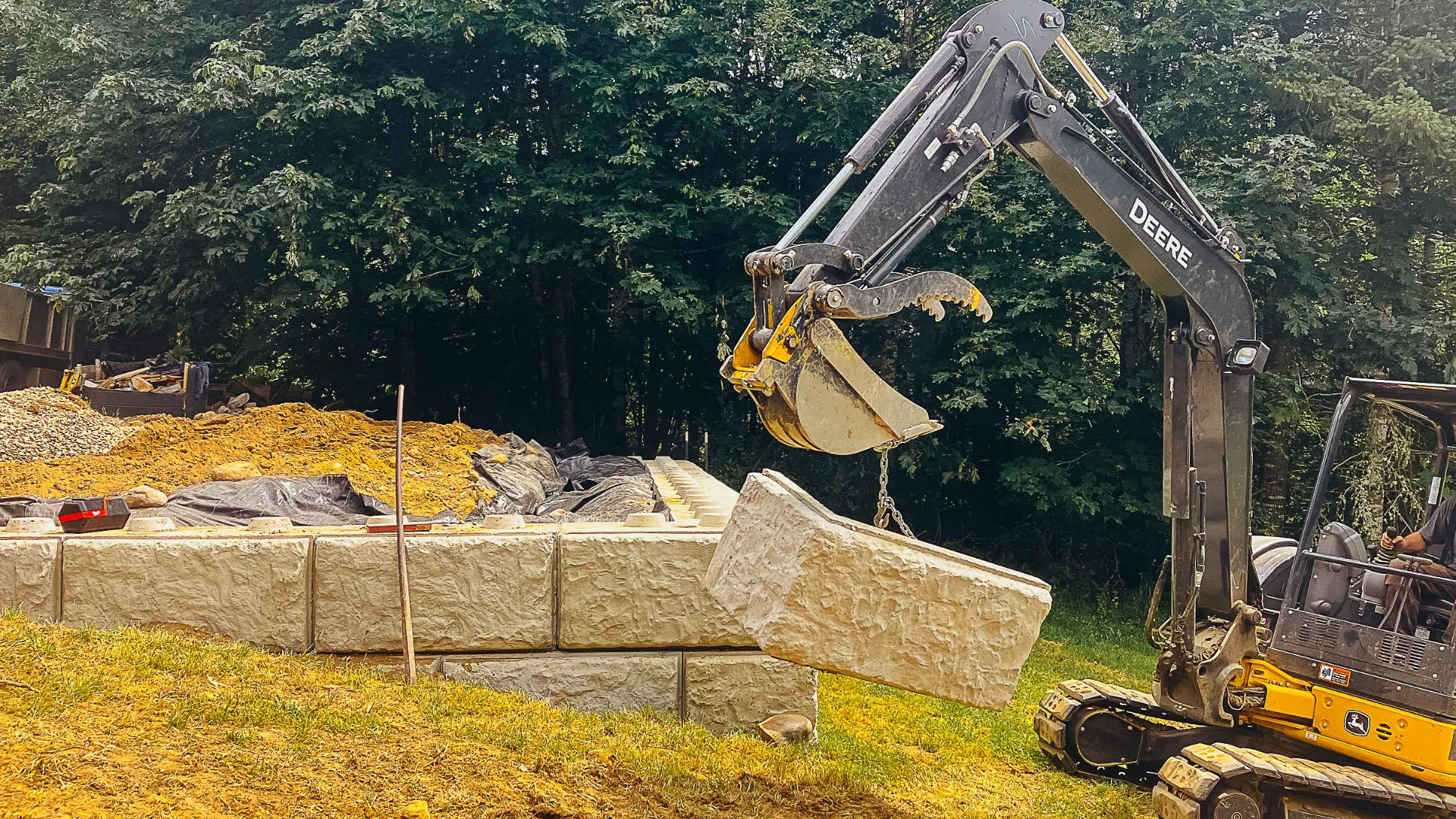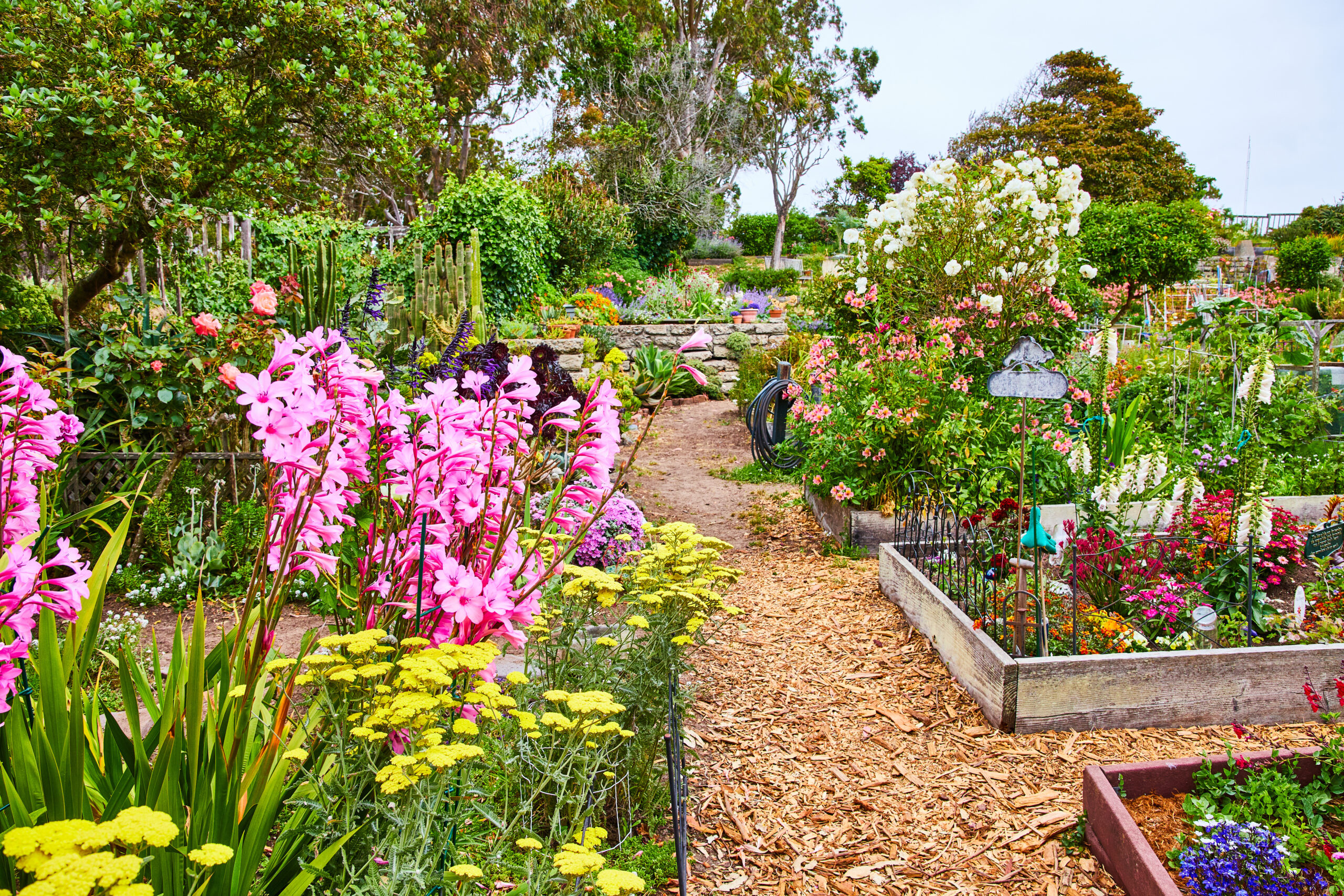
11 Mulch Alternatives to Wood Chips
Unless your landscape is nothing but grass or desert, you’ve probably used mulch to cover the exposed soil in your plant and garden beds or around tree trunks. And you’ve probably used mulch made from wood chips because it’s widely available or what your landscaper uses.
While there’s nothing wrong with wood mulch, it has some disadvantages: you have to replace it regularly, it can have an unpleasant odor, and it comes in a limited range of colors. And all of this may have you researching mulch alternatives.
Fortunately, there are many organic and inorganic mulch alternatives that can fit your budget, needs, and even lifestyle. What’s more, many of these options can improve the health of your soils and plants, just like wood mulch.
What Is Mulch and Why Should You Use It?
Mulch is a protective layer of “stuff” that covers soil. Organic mulch is made from natural materials, like wood chips, but some mulch is made of inorganic materials, like rubber or plastic.
Using mulch can improve your soil by:
- Keeping water in the soil, allowing plants to use the groundwater supply more effectively
- Stopping soil erosion
- Suppressing weed growth
- Protecting the soil from temperature swings
However, mulch can damage your plants if used incorrectly. For example, you should never mulch grass, only soil. And placing too much mulch against trees, AKA volcano mulching, can cause trunk rot.
The Top 6 Organic Mulch Alternatives
There are many benefits to using organic mulches. For example, organic mulches are excellent at retaining soil moisture, which reduces the need for watering, and they suppress weed growth. As the organic mulch materials break down, they add nutrients to the soil, enriching the soil and feeding the plants.
You’re probably most familiar with wood mulch, which is made of shredded, chipped, or ground-up wood. And while wood mulch is a great way to recycle old and storm-damaged trees, not everyone likes the look of wood chips in the garden.
Fortunately, there are a ton of organic alternatives to wood mulch that are just as effective.
1. Pine Needles
Pine needles are a fantastic organic mulch alternative. They take a long time to decompose, but as they do, the pine needles suppress weed growth and add nutrients to the soil, just like wood mulch.
However, contrary to popular belief, pine needles don’t make the soil more acidic. While pine needles are acidic, as they break down, the soil neutralizes the acid. So, while you can use pine needles as mulch, you can’t count on them to create the acidic soil that plants like hydrangeas prefer.
2. Grass Clippings
Grass clippings are another excellent mulch alternative in that they are nitrogen-rich. Nitrogen is vital to a plant’s health since that’s the nutrient that helps plants grow and produce fruits, vegetables, or flowers.
Grass clippings are also a budget- and eco-friendly mulch alternative. If you have a lawn, you can save the grass clippings instead of throwing them out.
3. Leaves
Leaves are another budget-friendly mulch option in that you can restock every fall! However, using leaves as mulch requires a bit of prep work. While you can use whole leaves as mulch, they’re far more effective if you shred them first.
4. Hay or Straw
Hay and straw are also good mulch alternatives, even if they aren’t the same thing. Hay is grass that’s been cut before it’s gone to seed, while straw is a leftover stalk from the grain harvest.
Hay and straw are soft but dense and excellent at soaking up water, not to mention some people love the smell. However, hay and straw can contain weed seeds, which could introduce weed growth in your garden and defeat the purpose of mulching in the first place.
5. Compost
Compost is made of organic materials, like leftover food scraps and grass clippings. As these scraps decompose, they create a nutrient-dense additive that keeps plants happy and healthy. While most people mix compost into their soil to feed it, you can also use compost as a nutrient-enriched mulch that’s very eco-friendly.
6. Cocoa Bean Hulls or Shells
A unique mulch alternative is cocoa bean hulls or shells. In addition to smelling delicious, this organic mulch can improve soil texture. It’s also a long-lasting mulch because the cocoa hulls break down slowly.
However, there are some downsides. Cocoa bean hulls can be toxic to dogs, just like chocolate. And sometimes, they’re a little too good at holding moisture. If you get a lot of rain, the cocoa bean shells can get oversaturated, which could overwater your plants. And the pleasant aroma is known to attract pests.
The Top 5 Alternative and Inorganic Mulch Options
While organic mulches have a lot of advantages, they aren’t for every gardener. Breaking down and adding nutrients to the soil is part of the appeal, not everyone wants the added duty of re-mulching their garden beds every year.
That’s where alternative and inorganic mulches come in. These mulches can also stop weeds and hold moisture in the soil, but they’re often more cost-effective than organic mulches because they last a lot longer.
What’s more, alternative and inorganic mulches can make your landscaping interesting. You can use contrasting colors and textures to create a one-of-a-kind look.
1. Stones, Gravel, and Pebbles
Stone, gravel, and pebbles are all excellent mulches. They are very effective at stopping weeds and retaining moisture, not to mention they help prevent soil erosion. Using rocks instead of mulch can be very cost-effective, thanks to their longevity. And unlike lightweight organic mulches, stone mulch, in particular, is unlikely to blow away!
However, using stones, gravel, or pebbles as your mulch materials means your garden may heat up. While some plants are fine with that (think: cacti), stone mulch can hold heat well after sundown, and this extra heat can stress certain plants, requiring you to water them more frequently.
2. Rubber
Rubber mulch is a popular mulch material because it’s made from recycled rubber that was destined for a landfill. Rubber mulch also lasts a long time, with some brands lasting as much as 10 years. Though rubber mulch is shredded, it’s heavier than shredded organic mulches, making it unlikely to blow away. And rubber mulches don’t attract pests.
3. Decorative Glass
Some gardeners use decorative glass as an inorganic mulch. Like other inorganic mulches, decorative glass doesn’t break down and generally stays put. It’s also a popular mulch alternative because it comes in a variety of shapes and colors, allowing you to add color, dimension, and even drama to your garden landscape.
4. Pumice
Like decorative glass, pumice is another bold alternative to traditional mulch. It’s similar to stone mulches in that pumice retains heat, which can stress plants. However, pumice is more porous than most rocks and stones, making it better at trapping and retaining moisture.
5. Cardboard or Newspaper
Cardboard and newspaper are also inorganic mulches you can use in garden beds. While they can help reduce weeds and improve plant growth, newspaper and cardboard mulch need a lot of attention. For example, wherever you use it, you’ll need to work the soil often to ensure the mulch drains properly and doesn’t attract pests.
Which Mulch Alternative Should I Use?
All of these mulch alternatives come with advantages and drawbacks, so there’s no one right answer. The best mulch alternative for you considers your plants and their needs, your overall climate, and how much time you’re willing to spend gardening and mulching. Ultimately, you may decide that a mix of mulches is the best choice.
For example, you may decide that organic mulch, like compost, is best for your vegetable gardens, while a mix of grass clippings and pine needles is better for your flower beds. Inorganic mulch like rubber may be the better choice for an area where you can’t or don’t want to do a lot of maintenance work.
What About Landscape Fabric?
Some people use landscape fabric as or in addition to mulch, believing that landscape fabric will stop weed growth. However, if you use the right amount of mulch, you shouldn’t need landscape fabric under the mulch.
Using landscape fabric over mulch also isn’t advised because while organic mulch will still break down, it won’t break down into the soil, defeating the purpose of using an organic mulch.
What About Groundcover Plants?
Groundcover plants, also known as green mulch, can be an excellent organic mulch alternative. Some examples are:
- St. John’s wort
- Creeping Jenny
- Brass buttons
- Spotted dead nettle
- Periwinkle
- Clover
- Myrtle
- English ivy
These plants stay low to the ground and help stop weeds from taking root in garden beds. Compared to most mulches, groundcover plants are a more natural look.
But groundcover plants are still plants, and as such, they require regular care and maintenance. Ironically, that includes that sometimes, you’ll have to mulch your groundcover plants!
Most Recent Post
